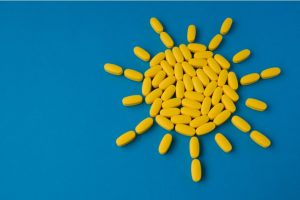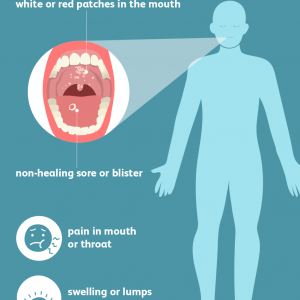According to many studies, more than 80% of our population, regardless of age, are deficient in vitamin D. But this is one of the few substances without which neither good physical health nor a stable working mind can be achieved. We urgently need to do something about this!
Recently I visited an endocrinologist and discussed my problems with being overweight. He prescribed vitamin D. I don’t understand why I need it? With the bones, everything seems to be in order for now.
Vitamin D is necessary for the whole body, not only for strengthening the skeleton and muscles, although it is for the prevention of rickets that it is most often prescribed to children, and to protect against osteoporosis – to the elderly. Nevertheless, it has been proven that with a normal supply of this vitamin, the passage of most processes in the body improves. After all, this substance is only partly a vitamin, in fact it is a prohormone, with the help of which many important hormones are produced in the body. With its regular adequate intake, the risk of obesity and metabolic syndrome is reduced. By the way, Vitamin D is also considered to be an oncoprotector – a substance that prevents the development of cancer.
I read from one blogger that it is useless to take pharmacy vitamin D, it is better to get it naturally: under the sun or in a solarium. Or at least with food. What and how much do you need to eat for this?
Vitamin D, in fact, can enter the body with food or be produced in the skin under the influence of ultraviolet radiation. But we have little sun, and doctors do not approve of regular visits to tanning salons. In addition, it must be borne in mind that the use of sunscreen prevents the skin from producing vitamin D, and sunbathing without such means is too dangerous in terms of the risk of melanoma. You can get this substance from food, but in order to reach the daily rate, you will have to eat 4.5 kilos of cheese, 2 kilos of salmon or 100 egg yolks per day.
I heard about the benefits of vitamin D on TV, and decided to buy it at the pharmacy. But I was confused, because there it is both in oil and in an aqueous solution, and the forms are different: D2 and D3. Which one is better to choose? And how do I know if I have a deficiency of this substance or not, so as not to waste money on the wind?
There are several varieties of natural vitamin D. They differ in chemical structure. D 2 (ergocalciferol) is a vegetable vitamin, and D3 (cholecalciferol) comes from animal products. However, upon entering the body, all forms of provitamin D turn into a universal form: 25 – OH vitamin D. This form is stable, circulates in the blood for a long time and reflects all metabolic transformations of vitamin D in the body, therefore it is considered the main marker by which one can judge. whether or not a person has enough of this substance. In addition, a blood test for 25 – OH vitamin D will help to calculate the optimal dose of the drug, an overdose of which can be dangerous. In some cases, it is also required to assess the balance of different metabolic variants of substances of the vitamin D group – to make a comprehensive analysis for vitamins of group D. For this, there are separate laboratory tests. But it makes sense to do them only at the request of a doctor. For example, in patients with chronic kidney disease, synthesis of the active metabolite of vitamin D, 1.25 (OH) 2 D, is usually reduced.
in chemical structure. D 2 (ergocalciferol) is a vegetable vitamin, and D3 (cholecalciferol) comes from animal products. However, upon entering the body, all forms of provitamin D turn into a universal form: 25 – OH vitamin D. This form is stable, circulates in the blood for a long time and reflects all metabolic transformations of vitamin D in the body, therefore it is considered the main marker by which one can judge. whether or not a person has enough of this substance. In addition, a blood test for 25 – OH vitamin D will help to calculate the optimal dose of the drug, an overdose of which can be dangerous. In some cases, it is also required to assess the balance of different metabolic variants of substances of the vitamin D group – to make a comprehensive analysis for vitamins of group D. For this, there are separate laboratory tests. But it makes sense to do them only at the request of a doctor. For example, in patients with chronic kidney disease, synthesis of the active metabolite of vitamin D, 1.25 (OH) 2 D, is usually reduced.
Is it mandatory to have a fasting blood test for vitamin D? And in what cases is this research done?
The test for total vitamin D (25-OH vitamin D) https://en.wikipedia.org/wiki/Vitamin_D is needed for those who have signs of a lack of this substance. There are many such symptoms, and they are very diverse: asthenia, depression, nervousness, irritability, excessive sweating of the back of the head and hair loss, sleep disturbances, problems with coordination. But most often the reasons for the study are complaints of muscle weakness, fragility of bones and frequent fractures, especially alarming if blood tests record a decrease in calcium levels. It also makes sense to examine the content of vitamin D for people with diseases of the intestines and gallbladder, since vitamin D is fat-soluble and should normally be absorbed in the intestines with fats that cannot be absorbed if the digestive tract is not healthy. It is also necessary to periodically check vitamin D levels for those who regularly take certain medications (for example, anticonvulsants and glucocorticoids), which can increase the need for vitamin D.



